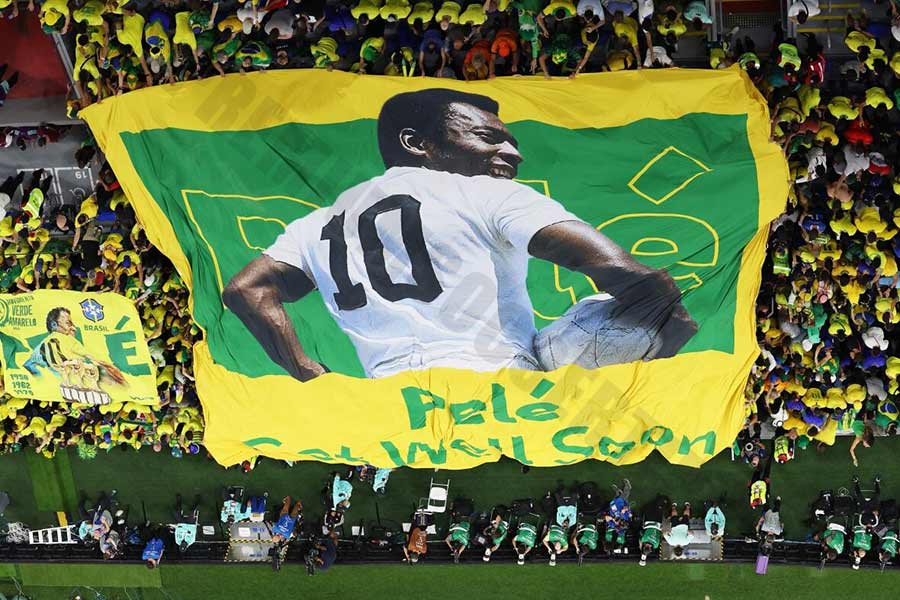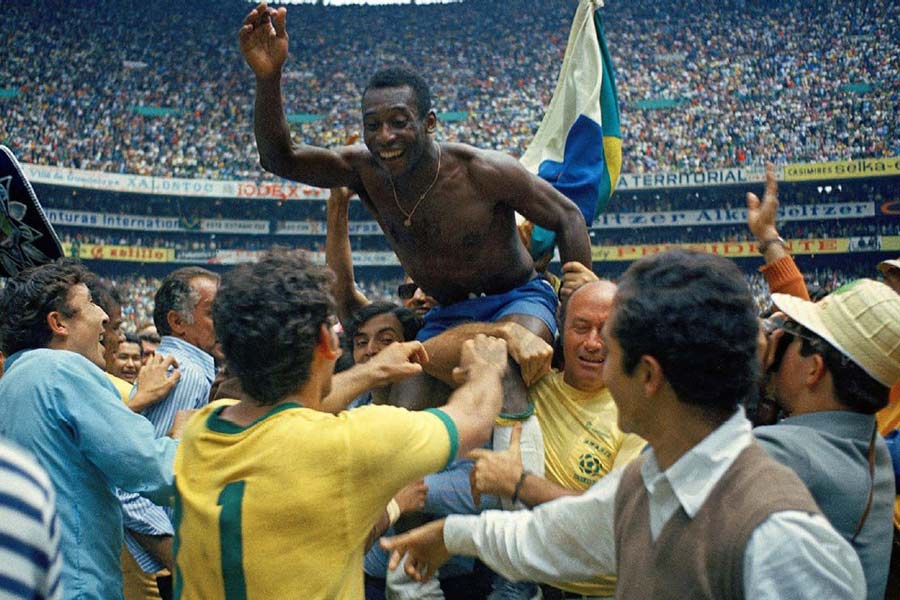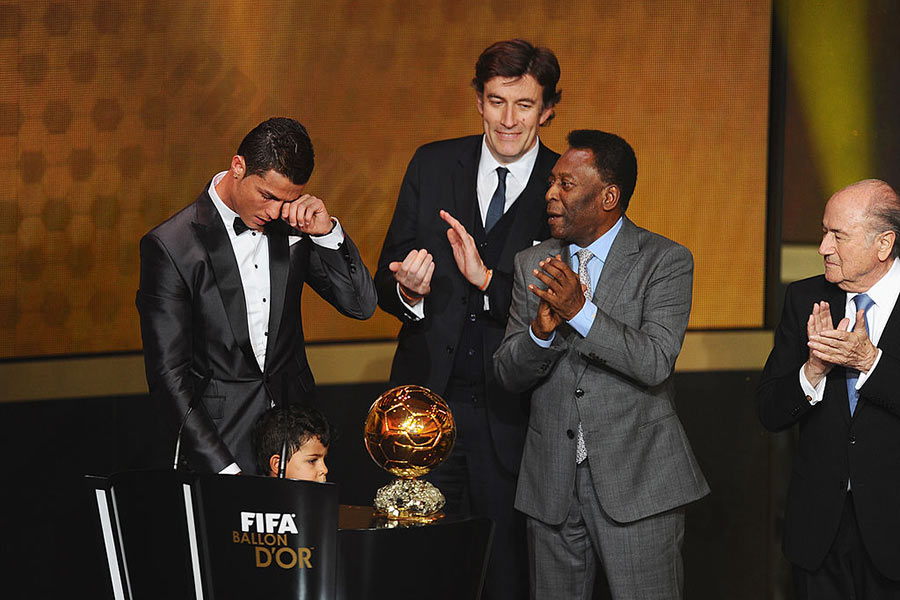Why is Pele the king of football? Find the answer
“The greatest player in history was [Alfredo] Di Stefano. I refuse to classify Pele as a player. He was more than that.” That quote comes from Fernc Puskas, and it sums up exactly how the Brazilian superstar was idolized even by some of his peers. What the former Santos legend achieved during his career was unparalleled. From bursting onto the international scene at just 17, helping his team win their first World Cup, the myth surrounding the man grew stronger and stronger. By the time he tragically passed away in 2022, his status as the King of Football had long been cemented. But how did Pele earn this nickname, and what did he do to keep it from being a teenager, until the end of his life? Let’s find out with Premiumsoccertips about Pele the king of football through the following article!

World cup hero – Pele
- Pele led Brazil to the 1958 World Cup
Long before he became one of the greatest goalscorers of all time, Pele was crowned king for the first time during his breakthrough summer in 1958. When the World Cup took place in Sweden, the hosts faced Seleção Canarinho in the semi-finals.
At this stage, teams had only seen glimpses of what Pele could do. After missing the opening two games, the teenager scored once in the next few games leading up to the last four. However, when it mattered most, the striker produced the performance of his life.
Les Bleus were shocked as Pele single-handedly tore them apart. A hat-trick and another assist later, the teenager led his team to an incredible 5-2 victory. As the final game against hosts Sweden awaited him, fans and journalists alike could not stop raving about what they had just witnessed.

Against Sweden, the iconic figure scored two more goals as Brazil won by the same scoreline as they had in the previous game, earning them their first Jules Rimet trophy. The 484th edition of Paris Match magazine was then published, which included a section dedicated to the success of la Brasilia and their star. In it, the youngster was called ‘Pele, roi du Bresil.’ What is the English translation? ‘Pele, king of Brazil.’
Having just produced the greatest international debut in history, the crown was firmly in Pele’s hands. As the rest of his career showed, it was no weight on his shoulders.
The King of football Pele and his career
Pele’s incredible career with Brazil
- The striker played 92 times for his country.
Pele continued his incredible international form leading up to the next World Cup in 1962. Going into the tournament, Brazil were aiming to achieve something that had only been done once before. Win back-to-back competitions. His form going into that summer was incredible, scoring seven goals and providing five assists in the friendlies leading up to the opening match. In that match against Mexico, he scored one goal and assisted another in a 2-0 win. He also featured in the 0-0 draw with Czechoslovakia.
However, a heartbreaking hamstring injury kept him out of the game, forcing him to sit on the sidelines to watch his team lift the trophy once more. The injury would be short-lived, but when he was in and around the national team, Pele certainly scored. He added 22 more goals to his tally before the 1966 World Cup, which Brazil were eliminated in the group stage.

Results were not what the defending champions had hoped for. Questions were also raised about a player who had not yet reached his peak in his first appearance at the tournament. However, he was about to address that.
Six goals and four assists in qualifying for the 1970 World Cup were just a sign of things to come. While in Mexico, Pele led arguably the greatest team ever assembled to glory once again. He finished with four goals and six assists, in his final international tournament.
Pele’s career with Santos
- Most goals scored by a single club
It was not only on the international stage that Pele proved his greatness. While South American stars often broke into top European teams when they were ready, that was not the case during the great man’s time. In fact, the best football was played in Brazil and few natives made it outside of it.
Pele spent most of his career at Santos, which would become one of the country’s biggest clubs, largely thanks to his efforts. He became a national champion six times and won the Copa Libertadores twice in 1962 and 1963.
When he left the club to join the New York Cosmos in 1975, he had scored 643 goals in 659 games. Not only is it a club record, but it is also the highest number of goals scored by any player at one club in professional history.
Ronaldo and football legends worship Pele
- Some of the greatest players ever had words of praise for him.
However, the beautiful game is more than just numbers on a page. The memories Pele left behind for fans and other footballers speak volumes about how special he was. Five-time Ballon d’Or winner Cristiano Ronaldo has described the Brazilian as the greatest player of all time. Former UEFA president Michel Platini said playing with the great was like playing with God. Johan Cruyff said the player defined logic.

However, Eric Cantona’s profound words may best illustrate Pele’s unique talent. In typical Cantona style, he described the moment that occurred in the 1970 World Cup final in a way that only he could:
“An artist, in my eyes, is someone who can light up a dark room. I have never and will never find a difference between the pass from Pele to Carlos Alberto in the 1970 World Cup final and the poetry of the young Rimbaud. In each of these human expressions there is an expression of beauty that touches us and gives us a sense of eternity.”
With sentiments like these, no matter who comes or goes in the next generation, the crown will belong to only one person. Pele, roi du football.
Final thoughts
Pele, “the king of football,” is an enduring icon in the history of the sport. From his historic hat-trick at the 1958 World Cup to his role as the driving force behind Brazil’s triumph in 1970, he was not only recognized for his trophies but also for the respect he commanded from his greatest peers. Pele’s magical moments on the pitch, such as his legendary pass in the 1970 final, are testament to his timeless talent. He left his mark not only in numbers but also in the hearts of millions of football lovers. When he passes away in 2022, he will have left an irreplaceable legacy, cementing his status as “Pele the king of football.”
See more: Ranking the slowest football player in the Premier League








